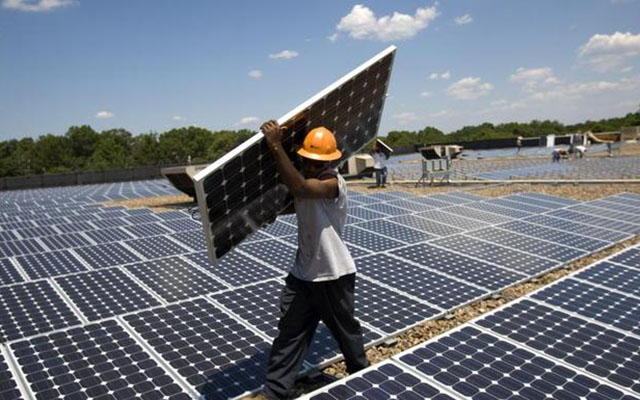 ZIMBABWE plans to set up a green-energy fund to promote the use of renewables, with the aim of increasing electricity production.
ZIMBABWE plans to set up a green-energy fund to promote the use of renewables, with the aim of increasing electricity production.
The country wants to generate at least 1 000 megawatts of power, or 16 percent of its total projected generation, through solar and other renewable energy systems by 2025, according to the energy ministry’s final draft of a policy document emailed to Bloomberg News.
State-owned utility Zesa Holdings Pvt Ltd. now generates about 1 500 megawatts against demand of about 2 200 megawatts. The fund will be backed by a sovereign guarantee, while the Finance Ministry “will develop a detailed plan to enhance the investor confidence and value of the guarantee in the market,” the document shows.
Electricity is available to about 40 percent of Zimbabweans, mainly in urban areas, with solar power providing just four percent of all power. About a third of the country’s electricity comes from a large-scale hydro-power plant at Kariba in the north.
Tax concessions will be offered to independent power generators selling electricity to Zesa Holdings, alongside reduced licensing fees. “Being a clean source of energy, renewable-energy projects shall be provided concessions in licensing fees and enjoy relaxations in other licensing requirements,” the Energy Ministry said.
Zimbabwe has the capacity to produce 1 600 megawatts (MW) of electricity from renewable energy resources by 2030, more than its present demand but lacks technology to exploit its resources, Energy and Power Development Minister, Dr Samuel Undenge said last week. “Our country, Zimbabwe is blessed with numerous renewable energy resources, that if well harnessed can supply 10 000 Gigawatt hours (GWh) of energy per year,” Dr Undenge said.
However, the country needs to recognise renewable energy technologies as important energy supply options as well as key resources for addressing universal energy access when more than half of its population does not have access to electricity, he added.
“Around 60 percent of this country’s population is still not connected to the national electricity grid,” said Undenge.
Zimbabwe’s thermal and hydro electricity supply is insufficient to meet the country’s electricity demand, with the country reliant on imports from Mozambique and South Africa. – Bloomberg.
